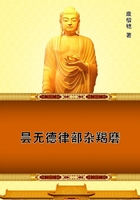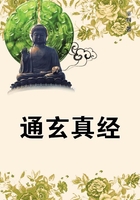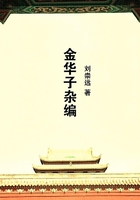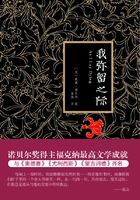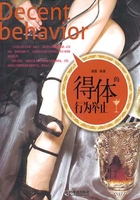They were for the most part poor, indolent landed proprietors, who did little more than sign the decisions prepared for them by the permanent officials. Even when a judge happened to have some legal knowledge he found small scope for its application, for he rarely, if ever, examined personally the materials out of which a decision was to be elaborated. The whole of the preliminary work, which was in reality the most important, was performed by minor officials under the direction of the secretary of the court. In criminal cases, for instance, the secretary examined the written evidence--
all evidence was taken down in writing--extracted what he considered the essential points, arranged them as he thought proper, quoted the laws which ought in his opinion to be applied, put all this into a report, and read the report to the judges. Of course the judges, if they had no personal interest in the decision, accepted the secretary's view of the case. If they did not, all the preliminary work had to be done anew by themselves--a task that few judges were able, and still fewer willing, to perform. Thus the decision lay virtually in the hands of the secretary and the minor officials, and in general neither the secretary nor the minor officials were fit persons to have such power. There is no need to detail here the ingenious expedients by which they increased their meagre salaries, and how they generally contrived to extract money from both parties. Suffice it to say that in general the chancelleries of the courts were dens of pettifogging rascality, and the habitual, unblushing bribery had a negative as well as a positive effect. If a person accused of some crime had no money wherewith to grease the palm of the secretary he might remain in prison for years without being brought to trial. A
well-known Russian writer still living relates that when visiting a prison in the province of Nizhni-Novgorod he found among the inmates undergoing preliminary arrest two peasant women, who were accused of setting fire to a hayrick to revenge themselves on a landed proprietor, a crime for which the legal punishment was from four to eight months' imprisonment. One of them had a son of seven years of age, and the other a son of twelve, both of whom had been born in the prison, and had lived there ever since among the criminals. Such a long preliminary arrest caused no surprise or indignation among those who heard of it, because it was quite a common occurrence. Every one knew that bribes were taken not only by the secretary and his scribes, but also by the judges, who were elected by the local Noblesse from its own ranks.
Old book-catalogues sometimes mention a play bearing the significant title, "The Unheard-of Wonder; or, The Honest Secretary" (Neslykhannoe Dyelo ili Tchestny Sekretar). I have never seen this curious production, but I have no doubt that it referred to the peculiarities of the old judicial procedure.
With regard to the scale of punishments, notwithstanding some humanitarian principles in the legislation, they were very severe, and corporal punishment played amongst them a disagreeably prominent part. Capital sentences were abolished as early as 1753-
54, but castigation with the knout, which often ended fatally, continued until 1845, when it was replaced by flogging in the civil administration, though retained for the military and for insubordinate convicts. For the non-privileged classes the knout or the lash supplemented nearly all punishments of a criminal kind.
When a man was condemned, for example, to penal servitude, he received publicly from thirty to one hundred lashes, and was then branded on the forehead and cheeks with the letters K. A. T.--the first three letters of katorzhnik (convict). If he appealed he received his lashes all the same, and if his appeal was rejected by the Senate he received some more castigation for having troubled unnecessarily the higher judicial authorities. For the military and insubordinate convicts there was a barbarous punishment called Spitsruten, to the extent of 5,000 or 6,000 blows, which often ended in the death of the unfortunate.
The use of torture in criminal investigations was formally abolished in 1801, but if we may believe the testimony of a public prosecutor, it was occasionally used in Moscow as late as 1850.
The defects and abuses of the old system were so flagrant that they became known even to the Emperor Nicholas I., and caused him momentary indignation, but he never attempted seriously to root them out. In 1844, for example, he heard of some gross abuses in a tribunal not far from the Winter Palace, and ordered an investigation. Baron Korff, to whom the investigation was entrusted, brought to light what he called "a yawning abyss of all possible horrors, which have been accumulating for years," and his Majesty, after reading the report, wrote upon it with his own hand:
"Unheard-of disgrace! The carelessness of the authority immediately concerned is incredible and unpardonable. I feel ashamed and sad that such disorder could exist almost under my eyes and remain unknown to me." Unfortunately the outburst of Imperial indignation did not last long enough to produce any desirable consequences. The only result was that one member of the tribunal was dismissed from the service, and the Governor-General of St.
Petersburg had to resign, but the latter subsequently received an honorary reward, and the Emperor remarked that he was himself to blame for having kept the Governor-General so long at his post.

